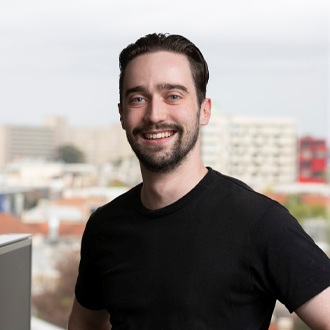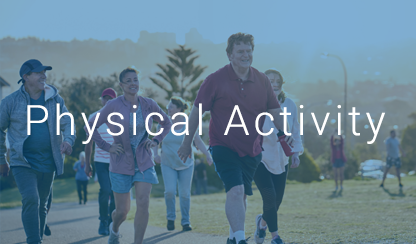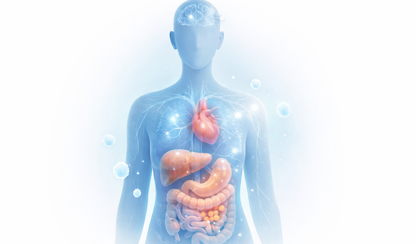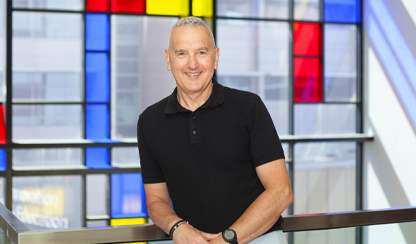21 August 2020
Institute news
In celebration of National Science Week 2020 we have been sharing stories from those working across the Baker Institute to progress scientific discoveries. Here, meet Christian Brakenridge, a PhD candidate in the Institute’s Physical Activity Laboratory investigating the interaction between glycaemic control and sitting time.
 Christian was fascinated by science from a young age, particularly in human physiology. One could even say his first test subject was himself!
Christian was fascinated by science from a young age, particularly in human physiology. One could even say his first test subject was himself!
A state-level table tennis player in his teens, and self-described obsessive, Christian would read up on theories around nutrition, strength training and other lifestyle changes, then run experiments to see how they impacted on his performance.
“I was absorbed by the idea that you could modify behavior to drive positive health and performance outcomes. Although I’m not sure I had much rigor to my experimentation back then,” Christian says.
From there Christian channeled his energy into a degree in clinical exercise physiology at the Queensland University of Technology, then held a research assistant role at the University of Queensland before working as an accredited exercise physiologist prescribing exercise as medicine for people with chronic disease.
A passion for human-focused research led him back to a PhD at the Baker Institute’s Physical Activity laboratory, examining sedentary behavior interventions that help with population health, with a specific focus on type 2 diabetes.
“I love being able to marry clinical and epidemiological research in my studies. I can work with patients and trial participants one-on-one, promoting positive health behaviours and helping them reach really exciting milestones, like improving their management of blood sugar levels and reducing dependence on medication. And I can also work at my computer looking at these large datasets to see how these interventions can bring benefits at a wider population level,” Christian says.
But with a global pandemic arriving midway through his PhD, Christian has also learnt how to be flexible and resilient. The clinical trial he was involved with has been paused due to government restrictions, meaning the data he needs for his thesis will not arrive in time to be written up for his 2021 completion date.
Instead, Christian and his supervisors Professor David Dunstan and Professor Neville Owen have moved quickly to negotiate a new source of data, already collected by colleagues in the Netherlands. This has seen the focus of Christian’s PhD pivot to learning more about international collaboration and data analysis, and he says he’s enjoying the greater focus on epidemiology work.
“It means less time collecting data but more time getting to explore it. I now have access to data from 3000 people, including extensive information from their activity trackers,” Christian says.
“I’ll be looking at the effect of sitting, replacing it with standing and moving, and the ramifications for glucose control and other diabetes risk factors. As well as understanding the role of insulin sensitivity on these relationships.
“The great thing is that I’ll be able to use the learnings from this data to help develop our laboratory’s trial as it is able to get back up and running.”





